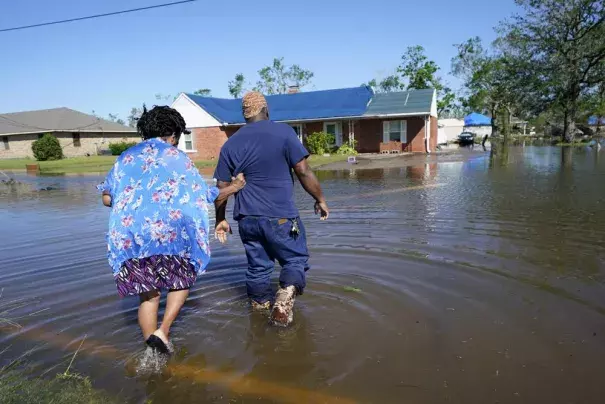Climate Change Made 2020 Hurricane Season Wetter

Climate change made the deadly, record-breaking 2020 Atlantic hurricane season dump more rain than it would have otherwise, a study published Tuesday in Nature Communications found. Across the season's vocabulary-depleting 30 named storms, three-day rainfall accumulations were 5% higher and three-hour rainfall rates were 10% higher than they would have been without climate change. Those increases were even greater in the 14 storms that reached hurricane strength — 11% and 8%, respectively. “It doesn’t sound like a lot, but if you’re near a threshold, a little bit can push you over the top,” Lawrence Berkeley National Lab climate scientist Michael Wehner, a co-author of the paper, told the AP. Previous studies have predicted such impacts, and others have found that individual storms were in fact wetter because of climate change. This is the first study to avoid the potential confirmation bias caused by only assessing major storms and surveying the entire season instead. “It isn’t this end-of-the-century problem that we have to figure out if we can mitigate or adapt to,” Kevin A. Reed, a professor at Stony Brook University and lead author of the study, told the New York Times. “[Climate change] is impacting our weather and our extreme weather now.”
(AP, New York Times $, Washington Post $, CNN; Climate Signals background: 2020 Atlantic hurricane season)
To receive climate stories like this in your inbox daily click here to sign up for the Hot News Newsletter from Climate Nexus:


